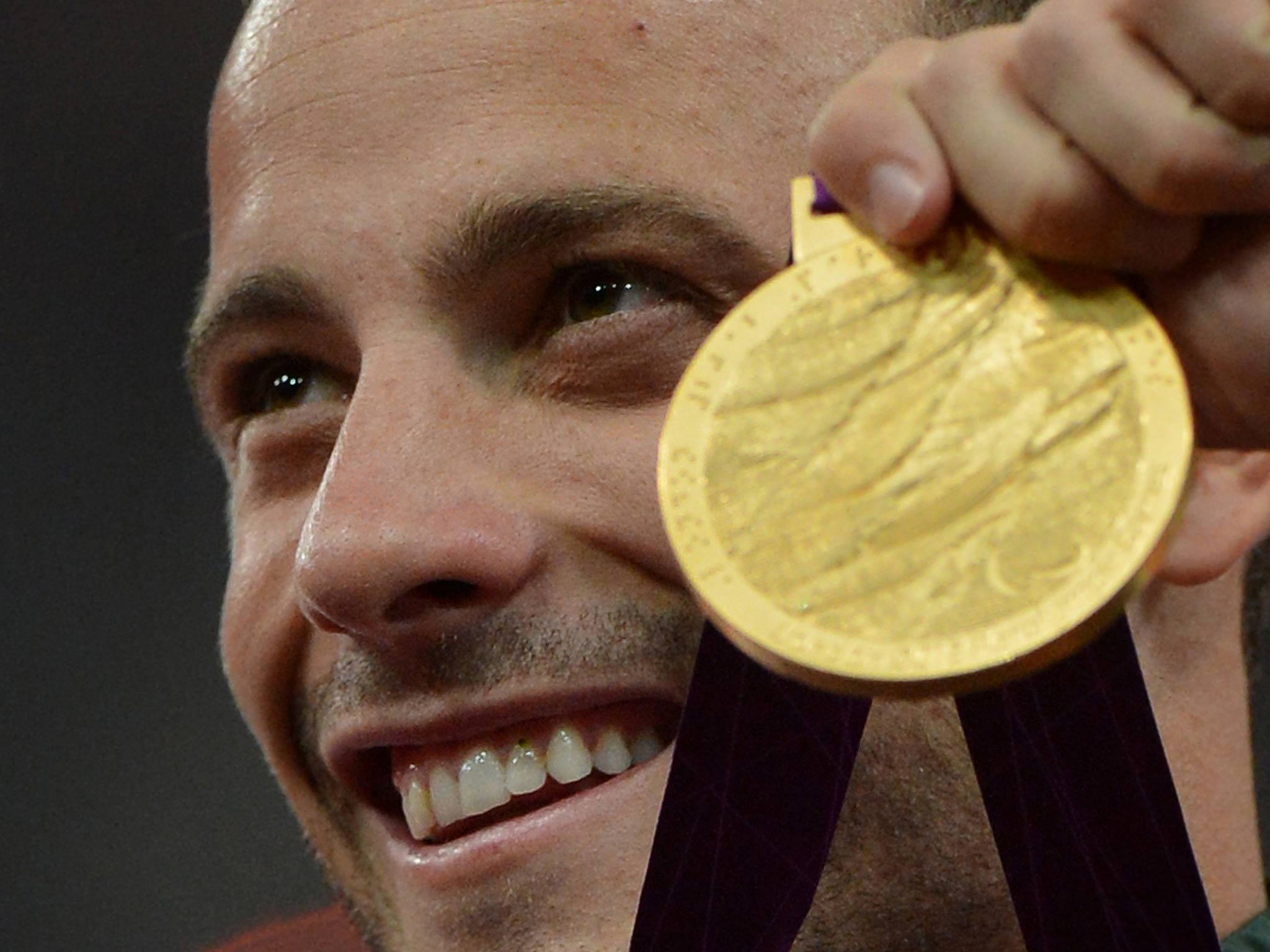Detectives 'not certain' boxes found in bedroom of Oscar Pistorius contain testosterone
South African police claimed to have found two boxes of testosterone and a number of needles in his bedroom

Claims that detectives investigating the murder of Reeva Steenkamp found performance-enhancing drugs in Oscar Pistorius's bedroom were dramatically withdrawn today.
South African police claimed in testimony at the athlete's bail hearing to have found two boxes of testosterone and a number of needles in his bedroom after searching the Paralympian's house in the wake of the fatal shooting of his girlfriend last week.
However, a spokesman for the state prosecutor was forced to make a sensational correction to the detective's tesitimony, saying there had been an error.
Medupe Simasiku, a spokesman for South Africa's National Prosecution Agency, said it is too early to identify the substance as it is still undergoing laboratory tests, and that they were "not certain" what the substance found actually is.
Should allegations of the use of performance-enhancing drugs be proved, Pistorius would face being stripped of the two gold medals and one silver he won at the London 2012 Paralympics.
During today's proceedings, Pistorious's defence team rejected the allegation, suggesting it was a legal herbal remedy, testo compositum co-enzyme, as the two sides traded claim and counter claim at this morning's bail hearing.
The detective in charge of the search, Hilton Botha, later admitted to Pistorius's lawyers that he had not properly read the label on the boxes.
Allegations that Pistorius, who has been charged with premeditated murder, has used steroids first emerged last week in the wake of his arrest. Both the World Anti-Doping Agency and the South African Institute for Drug Free Sport (SAIDFS) said they would support the police in any investigation but would not begin any enquiries of their own until the case had been completed.
“The [police] have not confirmed from a forensic perspective if indeed the substance is what the detective claims it to be,” said Khalid Galant, chief executive of South African Institute for Drug-Free Sport. “If any of the substances found are indeed established to be banned in sport, SA Institute for Drug-Free Sport will evaluate the evidence within the context of the anti-doping laws of sport. This evaluation will only occur after the criminal case has concluded.”
If the substance discovered is proved to be testosterone the court case is likely to be followed by an investigation by SAIDFS with the ultimate sporting sanction of him being stripped of his six Paralympic medals and facing a four-year ban from competition, which would rule him out of the Rio Olympics and Paralympics.
Last year Pistorius, a double amputee, competed in the London Olympics, becoming the first Paralympian runner to do so, and was then the international face of the London Paralympics, where he won two gold medals.
The International Paralympic Committee today said Pistorius was tested twice at the Paralympics, once before the Games (August 25)and once during the event in London (September 8). Both tests were negative. In the Olympics the first five in each event were tested as well as two more at random. Among the 6,250 tests carried out during the Games, a number were conducted at random in the athletes village. There were nine positive tests during the Games.
Testosterone is an anabolic steroid administered either orally or through injection. It helps increase muscle size, strength and power as it copies the effect of testosterone that occurs naturally in the body. Depending on the amount taken, it remains in an athlete's system from anything from one day to three months. Floyd Landis is reported to have failed a test for testosterone in the 2006 Tour de France.
While the drug regime surrounding the London Games was the most comprehensive in Olympic history, those involved in the anti-doping agencies stress it is not in competition testing that is the key to catching dopers. Doping regimes have become increasingly sophisticated - most doping occurs out of competition - and in the case of testosterone what is called micro-dosing has become common, taking small amounts that make it easier to avoid a positive test.
Last summer Victor Conte, the man behind the Balco scandal, was in London claiming that there is little point in testing athletes during the summer when competition is in full swing, rather the focus has to be out of competition because that is when the majority of doping takes place.
Just last week Wada called for greater aid in helping combat doping around the world. There are fears of "safe havens" around the world where athletes are able to dope in between competitions with little prospect of being tested. Kenya has become the recent focus of anti-doping investigations in the wake of claims of wide-spread doping. There is just one Wada-accredited laboratory in the whole of Africa.
Testosterone occurs naturally in the body but if an athlete has four times the accepted normal amount, it is deemed to be a doping offence.
Subscribe to Independent Premium to bookmark this article
Want to bookmark your favourite articles and stories to read or reference later? Start your Independent Premium subscription today.

Join our commenting forum
Join thought-provoking conversations, follow other Independent readers and see their replies